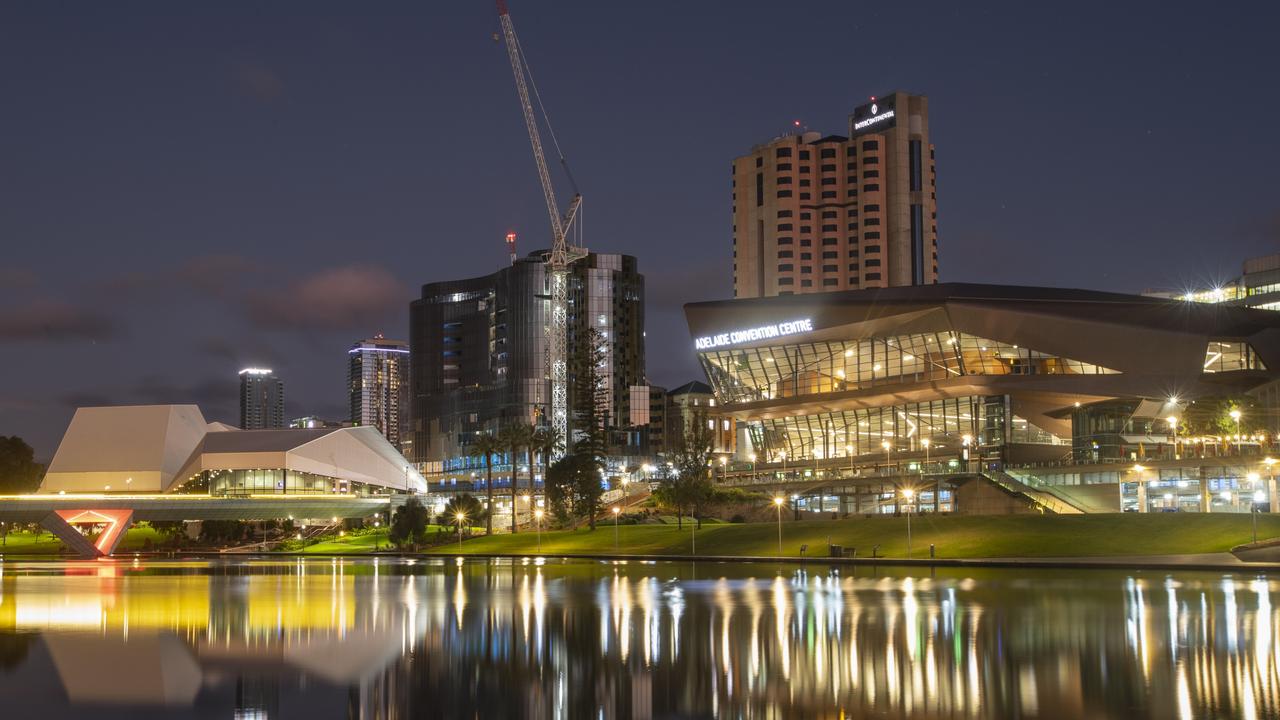Whyalla steelworks bailout would be cheaper than welfare bill, says Treasurer Tom Koutsantonis
FAILURE to save Whyalla’s steelworks could create a welfare bill far greater than the cost of a bailout and taxpayer support must be part of the solution, Treasurer Tom Koutsantonis says.

SA Business
Don't miss out on the headlines from SA Business. Followed categories will be added to My News.
- Whyalla overshadows improved jobs figures
- Six months to save 3000 jobs in Whyalla - and a city
- OneSteel must cut costs or it faces closure
- Resilient town says it will survive — but needs help
- Iluka to mothball SA mine, cut 33 jobs
FAILURE to save Whyalla’s steelworks could create a welfare bill far greater than the cost of a bailout and taxpayer support must be part of the solution, Treasurer Tom Koutsantonis says.
Politicians of all colours have rushed to show their support for workers of the ailing parent company Arrium, with 1100 jobs on the line unless it closes a $60 million per year budget hole.
The company has already cut $100 million out of its operations, and is now making plans to mothball the Whyalla factory in response to cheap Chinese imports and lower iron ore prices.
On Thursday, Mr Koutsantonis told The Advertiser: “No one is going to ride in from some distant place and save Arrium on their own. It’s going to be us and the Commonwealth Government.”
“In terms of what it will look like and what form it will take, we haven’t completed those negotiations yet,” he said.
“No one is going to ride in from some distant place and save Arrium on their own. It’s going to be us and the Commonwealth Government.” - Tom Koutsantonis
“The State Government is beginning to settle on what we think it might be, but it is far too premature for us to be talking about that publicly.”
Mr Koutsantonis said any deal “is not going to be just a sugar hit, it’s got to be structural”.
“What is the use of not investing in Arrium, only to pay probably three times the amount out in social security and welfare? It makes no sense at all.

“The Commonwealth Government should be doing a cost-benefit analysis of investing in Whyalla — whether it’s worthwhile just paying out social security, and what are the long-term costs to this nation if we don’t manufacture steel.”
Options open to the state and federal governments include ongoing annual support, investment in upgraded milling or other infrastructure and underwriting of some company costs or liabilities.
Senior SA Liberal Christopher Pyne committed to do all he could, launching an investigation into allegations Chinese steel is being sold in Australia at falsely low prices.
SA Council of Social Services executive director Ross Womersley said taxpayers should take a formal stake in Arrium if public money were handed over to prop up its future operations.
“We see literally millions of dollars being provided in the form of corporate welfare to car companies and others and the hope that, by providing that assistances, companies and the industries that they represent will remain viable and provide sustainable jobs,” he said.

“In most if not all instances, that corporate assistance arrives with few ties and in the event that the bailout succeeds, there is no expectation of a return to SA and the Government.
“It’s time, given the size of the contributions being made, that we change the rules and find ways in which governments and thus SA citizens are actually provided with a stake.”
Independent Senator Nick Xenophon is calling for other states to commit to buying local steel.
“Any procurement rules must acknowledge the massive economic multiplier effects of local procurement, rather than money and jobs being sent offshore,” he said.
Federal Opposition Leader Bill Shorten, who will visit Adelaide on Friday, is calling for the Coalition to help expand the Whyalla port and partner with the State Government.
He said the Coalition had been too slow in addressing Labor’s concerns about cheap Chinese steel and should “now be proposing action rather than further reviews”.
Australian Steel Institute chief executive said the “strategic industry” must be retained.
“Cost pressures have led in many cases to government procurement decisions being made purely on the basis of lowest upfront cost,” he said.

“This approach ignores economic value creation that is available from the multiplier effects of engaging the local supply chain meaningfully.”
“A more holistic approach would also go beyond merely the current availability of goods.
“If history is any guide, global steel gluts are balanced with years of shortages when the resilience of a local steelmaking capability really comes into its own, so development projects don’t risk undue delays which can be readily imposed on an island nation.”
Australian Workers’ Union National Secretary Scott McDine said Arrium needed to “end the vagueness and start putting strong, clear asks” to both levels of government.
“Whyalla is facing the prospect of a real catastrophe,” he said.
“What we need is a clear plan. Arrium needs to be very precise about what it is that it needs to keep its operations afloat and thousands of Australians employed.
“The livelihoods of literally thousands of Australians are at stake.”
Last Sunday, Whyalla businesswoman Jenny Odgers celebrated 30 years as the owner of U Pedal Cycles, in the town’s centre.
The 69-year-old said she had “seen it all” while living in Whyalla and would find a way to survive.
“I don’t think anyone really knows what’s going on but we know it’s not good,” she said.
“But whatever it takes, I can keep this place going and the whole town has the same attitude.”
— with Peter Jean, Craig Cook
Surging power prices put extra risk on steel, manufacturing
Daniel Wills
MAJOR electricity users in South Australian industries such as steel and manufacturing are at greater risk of going under in the next two years as power prices surge, industry warns.
Future markers for energy are predicting the state wholesale price to increase by 50 per cent over the next two years and reach about double that in competitor states like Victoria.
Modelling by Deloitte Access Economics also raises fears of blackouts, as the rise of intermittent renewable energy forces fossil fuel baseload facilities like Port Augusta’s out of business.
Australian Industry Group SA branch head Stephen Myatt said he was “extremely concerned at the trend of increasing electricity prices” and forecast “steep increases”.
“While it is not easy to identify a single cause of South Australia being so out of alignment with the other states, the situation needs urgent work by the Government, the energy market authorities and industry to investigate the causes of these steep price increases,” he said.
“While other states will go through energy transitions of their own in future, for now this is a uniquely South Australian problem which clearly needs some immediate attention.”
BusinessSA chief executive Nigel McBride said some operators in the state’s Southeast were considering living in SA but moving their businesses over the border to get cheaper power.
Treasurer Tom Koutsantonis said: “I am working towards solutions here, but I don’t think it is going to be as bad as everyone thinks it’s going to be. But it’s still not good.”
“We’ve got an expression of interest open now for the Government’s procurement of electricity. We’re a very large purchaser here, and we’re looking at ways of reducing cost,” he said.
“The futures markets show a spike in the next two years, but a dramatic drop after that.”


